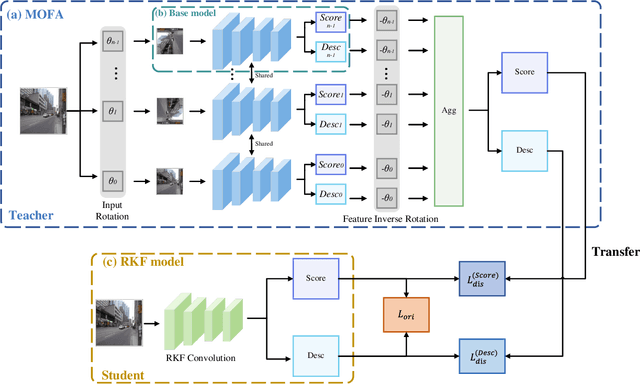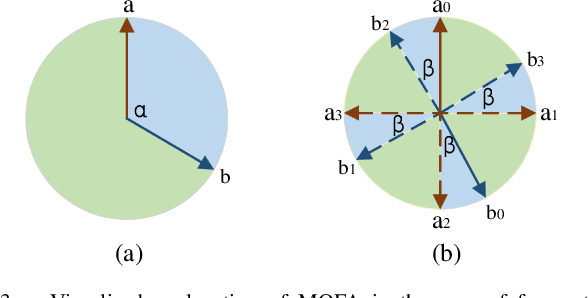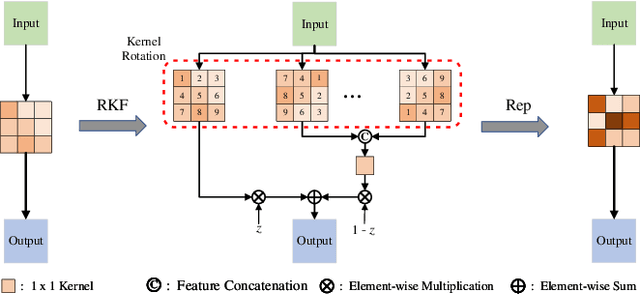Jiancheng Cai
DRKF: Distilled Rotated Kernel Fusion for Efficiently Boosting Rotation Invariance in Image Matching
Sep 22, 2022



Abstract:Most existing learning-based image matching pipelines are designed for better feature detectors and descriptors which are robust to repeated textures, viewpoint changes, etc., while little attention has been paid to rotation invariance. As a consequence, these approaches usually demonstrate inferior performance compared to the handcrafted algorithms in circumstances where a significant level of rotation exists in data, due to the lack of keypoint orientation prediction. To address the issue efficiently, an approach based on knowledge distillation is proposed for improving rotation robustness without extra computational costs. Specifically, based on the base model, we propose Multi-Oriented Feature Aggregation (MOFA), which is subsequently adopted as the teacher in the distillation pipeline. Moreover, Rotated Kernel Fusion (RKF) is applied to each convolution kernel of the student model to facilitate learning rotation-invariant features. Eventually, experiments show that our proposals can generalize successfully under various rotations without additional costs in the inference stage.
FCSR-GAN: Joint Face Completion and Super-resolution via Multi-task Learning
Nov 04, 2019



Abstract:Combined variations containing low-resolution and occlusion often present in face images in the wild, e.g., under the scenario of video surveillance. While most of the existing face image recovery approaches can handle only one type of variation per model, in this work, we propose a deep generative adversarial network (FCSR-GAN) for performing joint face completion and face super-resolution via multi-task learning. The generator of FCSR-GAN aims to recover a high-resolution face image without occlusion given an input low-resolution face image with occlusion. The discriminator of FCSR-GAN uses a set of carefully designed losses (an adversarial loss, a perceptual loss, a pixel loss, a smooth loss, a style loss, and a face prior loss) to assure the high quality of the recovered high-resolution face images without occlusion. The whole network of FCSR-GAN can be trained end-to-end using our two-stage training strategy. Experimental results on the public-domain CelebA and Helen databases show that the proposed approach outperforms the state-of-the-art methods in jointly performing face super-resolution (up to 8 $\times$) and face completion, and shows good generalization ability in cross-database testing. Our FCSR-GAN is also useful for improving face identification performance when there are low-resolution and occlusion in face images.
 Add to Chrome
Add to Chrome Add to Firefox
Add to Firefox Add to Edge
Add to Edge